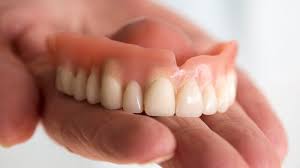Overdentures: A Comprehensive Guide to Their Importance and Benefits
Asenqua Tech is reader-supported. When you buy through links on our site, we may earn an affiliate commission.
Overdentures have become an increasingly popular option for individuals seeking to improve their oral health and quality of life. This comprehensive guide aims to explore the importance and benefits of overdentures, shedding light on why they are a valuable choice for many patients.
Importance of Overdentures
Preservation of oral structures
Overdentures play a crucial role in preserving the remaining oral structures of individuals who have lost some or all of their natural teeth. By utilizing dental implants to secure the dentures in place, overdentures help maintain the integrity of the jawbone and surrounding tissues. This not only ensures a strong foundation for the dentures but also prevents further bone loss that can occur when teeth are missing.
Improvement in speech and chewing
One of the key benefits of overdentures is the improvement they bring to speech and chewing abilities. Traditional dentures can often shift or move while speaking or eating, causing discomfort and difficulty in communication. By securing the dentures with implants, overdentures offer a stable and secure fit that enhances speech clarity and chewing efficiency.
Enhancement of facial aesthetics
Overdentures also contribute to the enhancement of facial aesthetics by providing support to the facial muscles and structures. With traditional dentures, the loss of teeth can lead to a sunken appearance and premature aging of the face. Overdentures help maintain the natural contours of the face, preserving a more youthful and vibrant look for the patients.
Prevention of bone loss
Bone loss is a common issue that occurs when teeth are missing, as the jawbone begins to resorb due to lack of stimulation. Overdentures help prevent this bone loss by stimulating the underlying jawbone through the dental implants. This stimulation promotes bone growth and preserves the density and strength of the jawbone, keeping it healthy and stable over time.
Minimization of denture slippage
One of the most significant advantages of overdentures is the minimization of denture slippage and movement. Traditional dentures can often shift or dislodge during speaking or eating, leading to embarrassment and discomfort. Overdentures, secured in place with implants, offer a secure and stable fit that eliminates the risk of slippage, allowing patients to enjoy a worry-free experience.
Benefits of Overdentures
Increased comfort and confidence
One of the primary benefits of overdentures is the increased comfort and confidence they provide to patients. With traditional dentures, many individuals experience discomfort, soreness, and irritation due to the movement of the dentures. Overdentures offer a secure and stable fit that eliminates these issues, allowing patients to speak, eat, and smile with ease. This enhanced comfort leads to improved confidence and self-esteem in social situations.
Improved oral function and health
Overdentures contribute to improved oral function and health by restoring the natural function of the teeth and supporting structures. With traditional dentures, individuals may struggle to chew properly and digest food efficiently. Overdentures, secured with implants, provide a strong and stable bite force that allows for better chewing and digestion. This improved function not only enhances oral health but also contributes to overall well-being and quality of life.
Enhanced quality of life
The overall quality of life for individuals with overdentures is significantly improved due to the comfort, function, and aesthetics they provide. Overdentures enable patients to enjoy a natural-looking smile, improved speech clarity, and better eating experiences. This enhanced quality of life extends beyond the physical benefits of overdentures, influencing emotional well-being and social interactions positively.
Long-term cost effectiveness
While the initial cost of overdentures may be higher than traditional dentures, the long-term cost-effectiveness of overdentures is a significant advantage. Overdentures require less frequent adjustments and replacements compared to traditional dentures, resulting in cost savings over time. Additionally, the prevention of bone loss and the maintenance of oral health offered by overdentures can lead to fewer dental complications and associated costs in the future.
Conclusion
Overdentures are a valuable option for individuals seeking to improve their oral health, function, and quality of life. By preserving oral structures, enhancing speech and chewing abilities, improving facial aesthetics, preventing bone loss, and minimizing denture slippage, overdentures offer a range of benefits that contribute to overall well-being. With increased comfort and confidence, improved oral function and health, enhanced quality of life, and long-term cost effectiveness, overdentures are a practical and beneficial choice for many patients.
Consider discussing the option of overdentures with your dental provider to explore the advantages they offer and make an informed decision about your oral health care.







